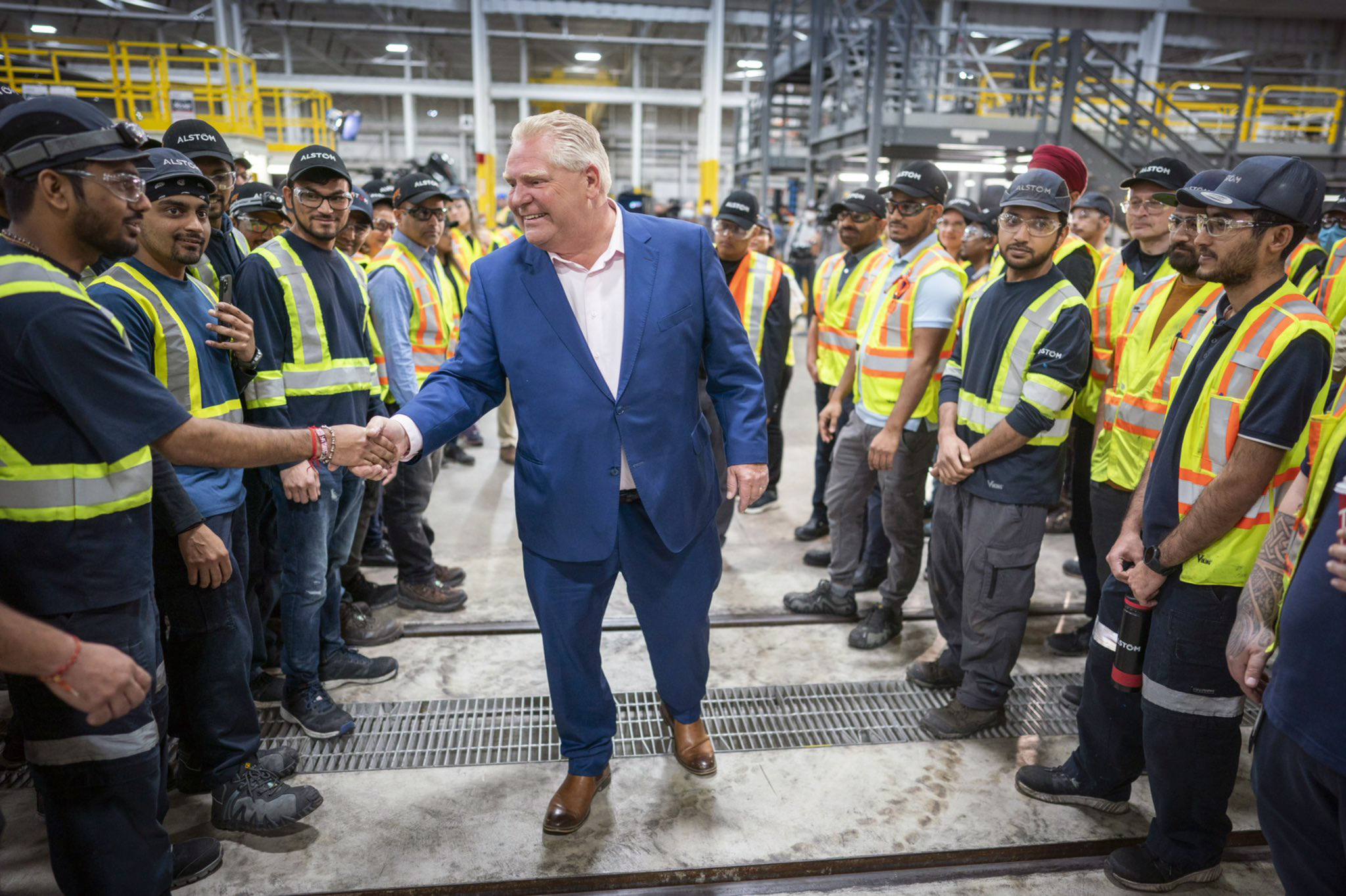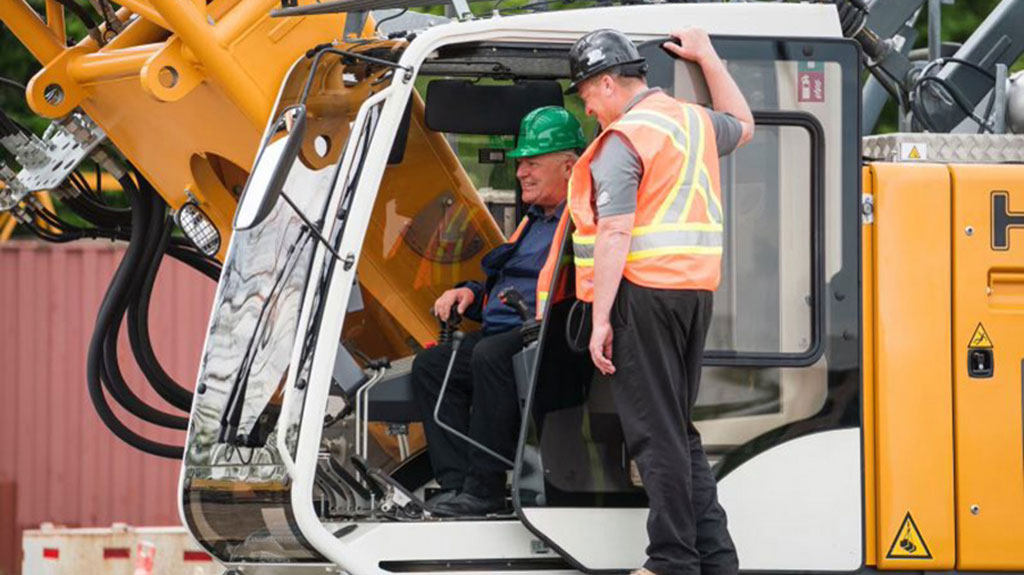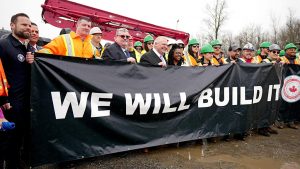Leaders of construction associations in Ontario say Doug Ford and the Progressive Conservatives winning the election by such a decisive margin means the party now has a strong mandate to continue building infrastructure in the province.
Ford won a majority government June 2. Both Liberal Leader Steven Del Duca and NDP Leader Andrea Horwath stepped down following the election.
“There was a clear message in this election about the need to keep building Ontario,” said Erich Schmidt, manager of public affairs and innovation with the Ontario General Contractors Association (OGCA), in an email to the Daily Commercial News. “The OGCA supports all investments in infrastructure, whether it’s transportation, housing, health care or education.
“We believe this government has the tools to build on its record of keeping workers safe, addressing the skills shortage, and reducing red tape.”
Residential and Civil Construction Alliance of Ontario executive director Nadia Todorova said the alliance doesn’t want to lose the momentum gained over the last few months.
“Critical infrastructure plays an important role in the lives of Ontarians and the decisive majority that Ontarians handed the Progressive Conservatives reflects the fact that Ontarians want Highway 413 and other critical infrastructure built,” she said.
“I think there is a clear understanding by the election results that the people of Ontario realize that a growing region requires building new infrastructure whether it be roads, bridges, water, wastewater and housing.”
The RCCAO is hoping to continue to work with the government on issues such as regulatory reforms around underground utilities; providing financial assistance to municipalities who are experiencing significant shortfalls; reforming the immigration system to make sure skilled tradespeople are coming to Ontario; and making housing more accessible.
Prior to the election, Ontario Sewer and Watermain Construction Association executive director Patrick McManus said in many respects the election was a referendum on critical transportation projects.
“The re-election of the Ford government provides much needed continuity on a number of critical policy and programming files for the construction industry, foremost of which are the Highway 413 and Bradford Bypass,” said McManus in an email to the Daily Commercial News. “The outcome of this is quite clear as all of the ridings along the proposed routes have elected representatives from the Progressive Conservative Party; the only party touting the need for these highways.”
The Ontario Road Builders Association (ORBA) said while they didn’t endorse any parties during the election, they were pleased the PC campaign focused on building transportation infrastructure.
“Of the four major parties, the Conservatives made a commitment to the construction of major infrastructure such as Highway 413 and the Bradford Bypass,” reads a statement from ORBA. “We have repeatedly stated that building for the future was extremely important and definitely in the best interests of Ontario’s long-term goals for growth and prosperity.”
Karen Renkema, vice-president at the Progressive Contractors Association of Canada, said one of the items that will be top of mind for this government is responding to current economic fragility.
“I think that will be crucial to the government’s intention to spend so much on infrastructure and their investments in rebuilding in Ontario right now. They need to do so with a real acute sense to the cost of it but also the fairness for everybody across the province,” Renkema said.
“Ensuring that when the province is building infrastructure there is best bang for the buck for everybody and that we’re doing so and we’re including all workforces, regardless of who they are affiliated with from a union perspective, regardless of their gender, regardless of their race but finding a fair way for everybody to build our infrastructure.”
She also said the government needs to focus on training skilled tradespeople for the future.
“Do we have enough training providers in Ontario to facilitate training our workforce? What type of training should we be providing?” she asked.
The new CEO of the Ontario Home Builders Association (OHBA) Luca Bucci said he was surprised by the magnitude of Ford’s win.

“The one promise we’re really looking forward to working with him on as an industry is to construct 1.5 million new homes over the next 10 years,” Bucci said, adding the Housing Affordability Task Force created prior to the election sets out a blueprint for getting those homes built.
“We want to see some bold policy that is really going to address the issue of housing supply.”
The OHBA is hoping to work with provincial and municipal governments to break down the barriers to getting more homes built.
“I think a lot of the roadblock is derived from this narrative that development and environmental protection cannot co-exist,” Bucci said.
“As an industry we need to work with government to help them understand that there is this new way of building homes that could really satisfy that balance, get us away from this destructive narrative that is getting in the way of building homes.”
The Residential Construction Council of Ontario (RESCON) endorsed Doug Ford in the provincial election. President Richard Lyall said the PCs have already started taking action to address the housing supply crisis.
“We felt that they were the best party, they would form the best government to continue in their case – not start as in the case of the others – addressing the issues,” said Lyall.
“The question is can we act decisively and quickly enough to shock the system, to make the changes, to modernize the process, to allow for the missing middle, which is still missing, so we can find our way to allow for the needed supply to be produced? The only way to do that in a situation like the one we’re facing is we’ve got to control our costs.”











Recent Comments
comments for this post are closed